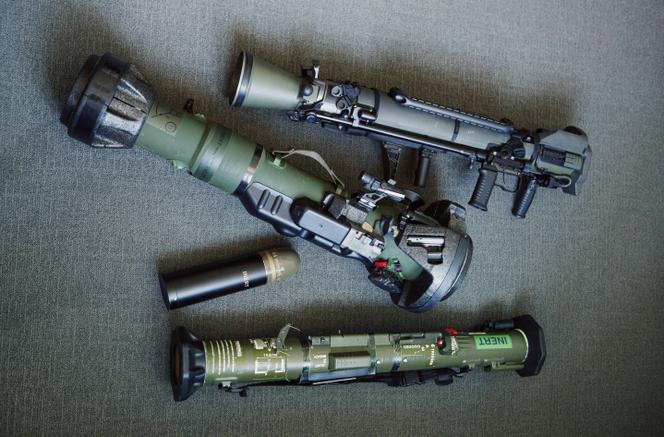


The small building with its yellow wooden facades, located on the outskirts of Karlskoga, 250 kilometers west of Stockholm, sits far from the din of war. Here, calm reigns. In the workshop, workers methodically assemble Carl Gustaf AFCON anti-tank guns. They arrive here in parts. Calibrated and tested at the nearby firing center, they are then cleaned and packed in khaki covers, before being prepared for delivery. Some will end up in Ukraine, where Swedish manufacturer Saab's anti-tank systems – the Carl Gustaf, but also the AT4 rocket launcher and the NLAW missile – have acquired a certain notoriety on the battlefield.
Director of Saab Dynamics, the group subsidiary focused on the land segment, Görgen Johansson did not tire of recounting the day his boss called him, in early 2022. "He had just seen that the UK had sent 3,500 NLAWs to Ukraine." Three weeks later, on February 24, Russia launched its offensive. Ukrainian soldiers quickly posted videos on social media showing them shooting down enemy tanks. In them, they praised the famous NLAW, along with a meme sanctifying it.
Saab's share price has soared, more than tripling since February 2022. Orders have exploded. The Swedish manufacturer invested €150 million in its production capacity. Nothing like this had happened since the group began manufacturing Carl Gustafs in 1948, according to Michael Höglund, head of the Land Combat division. Several factories will be built in Sweden and abroad, notably in India. The aim is to quadruple deliveries of anti-tank weapons and ammunition by 2025, from 100,000 to 400,000 units a year.
Johansson said the war in Ukraine was a formidable "showcase" for Saab, whose catalog ranges from Gripen fighter jets to GlobalEye air surveillance systems, radar, camouflage and submarines. In 2023, the group's orders, already up in 2022, climbed by 23%, as did its sales, which reached 51.6 billion Swedish krona (€4.5 billion), while its profit grew by 51%, ending at 3.4 billion krona.
Over the past year, the manufacturer, which employs over 21,000 people worldwide, including 16,000 in Sweden, has increased its workforce by almost 2,500 and is continuing to recruit. And it's not the only one. The entire Swedish arms industry is abuzz – a sector that brings together around 200 companies, some 60 of which are foreign-owned. In 2022, these companies, with sales of 48.5 billion krona, employed over 28,000 people. "We don't yet have the result for 2023, but it should be much higher," said Robert Limmergard, director of the Swedish Security and Defense Industry Association (SOFF).
You have 72.65% of this article left to read. The rest is for subscribers only.
